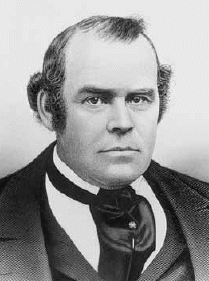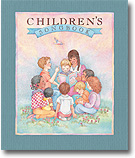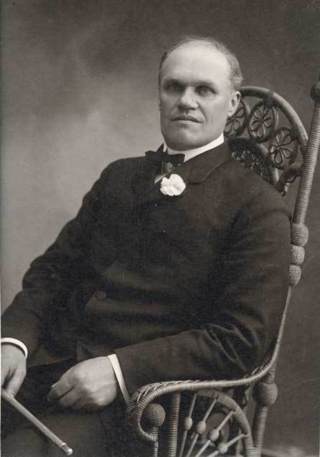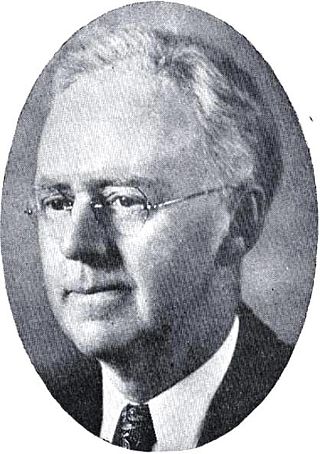Related Research Articles

Kolob is a star or planet described in the Book of Abraham, a sacred text of the Latter Day Saint movement. Several Latter Day Saint denominations claim that the Book of Abraham was translated from an Egyptian papyrus scroll by Joseph Smith, the founder of the movement. According to this work, Kolob is the heavenly body nearest to the throne of God. While the Book of Abraham calls Kolob a "star", it also calls planets "stars", and therefore some Latter Day Saint commentators consider Kolob a planet. The body also appears in Latter Day Saint culture, including a reference to Kolob in an LDS hymn.

Parley Parker Pratt Sr. was an early leader of the Latter Day Saint movement whose writings became a significant early nineteenth-century exposition of the Latter Day Saint faith. Named in 1835 as one of the first members of the Quorum of the Twelve Apostles, Pratt was part of the Quorum's successful mission to Great Britain from 1839 to 1841. Pratt has been called "the Apostle Paul of Mormonism" for his promotion of distinctive Mormon doctrines.
"The Spirit of God Like a Fire Is Burning" is a hymn of the Latter Day Saint movement. It was written by W. W. Phelps, one of the most prolific hymnwriters of early Latter Day Saint movement.
Within the Latter Day Saint movement, Zion is often used to connote an association of the righteous. This association would practice a form of communitarian economics, called the United Order, which were meant to ensure that all members maintained an acceptable quality of life, class distinctions were minimized, and group unity achieved.
Hymns are an important part of the history and worship of the Church of Jesus Christ of Latter-day Saints.

Hymns of the Church of Jesus Christ of Latter-day Saints is the official hymnal of the Church of Jesus Christ of Latter-day Saints . Published in English in 1985, and later in many other languages, it is used throughout the LDS Church. This article refers to the English version. The book was published on the 150th anniversary of the publication of the first LDS hymnbook, compiled by Emma Smith in 1835. Previous hymnbooks used by the church include The Manchester Hymnal (1840), The Psalmody (1889), Songs of Zion (1908), Hymns (1927), and Hymns (1948).

The Children's Songbook of The Church of Jesus Christ of Latter-day Saints is the official songbook for children in the Church of Jesus Christ of Latter-day Saints. It was first published in English in 1989. These songs are for the Primary, which is an organization in the LDS Church for children between the ages of 18 months and 12 years old, who learn about the teachings of Jesus Christ.

George Manwaring was a hymnwriter of the Church of Jesus Christ of Latter-day Saints. Some of his works have become favorite LDS hymns and are found in the 1985 LDS Church hymnal.

Evan Stephens was a Latter-day Saint composer and hymn writer. He was also the director of the Mormon Tabernacle Choir for 26 years (1890–1916).

George Edward Percy Careless was a prominent Latter-day Saint composer and conductor.

Joseph Spencer Cornwall was a conductor of the Mormon Tabernacle Choir in the mid-20th century.

"Come, Come, Ye Saints" is one of the best-known Latter-day Saint hymns. The lyrics were written in 1846 by Mormon poet William Clayton. The hymn has been called the anthem of the nineteenth-century Mormon pioneers and "the landmark Mormon anthem."

Ebenezer Beesley was a Latter-day Saint hymn writer and composer. The music for twelve of the hymns in the 1985 English-language hymnal of the Church of Jesus Christ of Latter-day Saints were written by him.

Tracy Young Cannon was an American Latter-day Saint musician, composer, and musicologist.

Charles John Thomas was the director of the Mormon Tabernacle Choir, now the Tabernacle Choir at Temple Square, for part of the 1860s, and was involved in several other musical endeavors in early Utah.

Frank Wilson Asper was an American composer and member of the Church of Jesus Christ of Latter-day Saints who served as Mormon Tabernacle organist from 1924 to 1965.

The Church of Jesus Christ of Latter-day Saints was first brought to the Netherlands in 1841, with the first congregation officially established in 1862 in Amsterdam. A mission to the Netherlands was organized in 1864, and the Dutch translation of the Book of Mormon was published in 1890. Membership grew in the 20th century despite challenges posed by World War I, the Great Depression, and the German invasion of the Netherlands during World War II; approximately 14,000 people were baptized into the Church during its first 100 years in the Netherlands. The Dutch government officially recognized the Church in 1955. The Netherlands Stake of the Church of Jesus Christ of Latter-day Saints was established in 1961, becoming the first stake established on the European continent. The Hague Netherlands Temple was completed in 2002.

"High on the Mountain Top" is an 1850s hymn written by Latter Day Saint hymn writers Joel H. Johnson and Ebenezer Beesley. Originally named "Deseret", it is hymn number 5 in the current LDS Church hymnal.
References
- Terryl L. Givens and Matthew J. Grow (2011). Parley P. Pratt: The Apostle Paul of Mormonism (New York: Oxford University Press, ISBN 0195375734) pp. 179–80
- David Maxwell, "'The Morning Breaks': George Careless, Musical Pioneer", Ensign , February 1984
- "Latter-day Saint Hymns: 'The Morning Breaks, the Shadows Flee'", Millennial Star , vol. 88, no. 2 (14 January 1926) pp. 28–31
- ↑ "The Morning Breaks". www.churchofjesuschrist.org. Retrieved 2022-09-12.